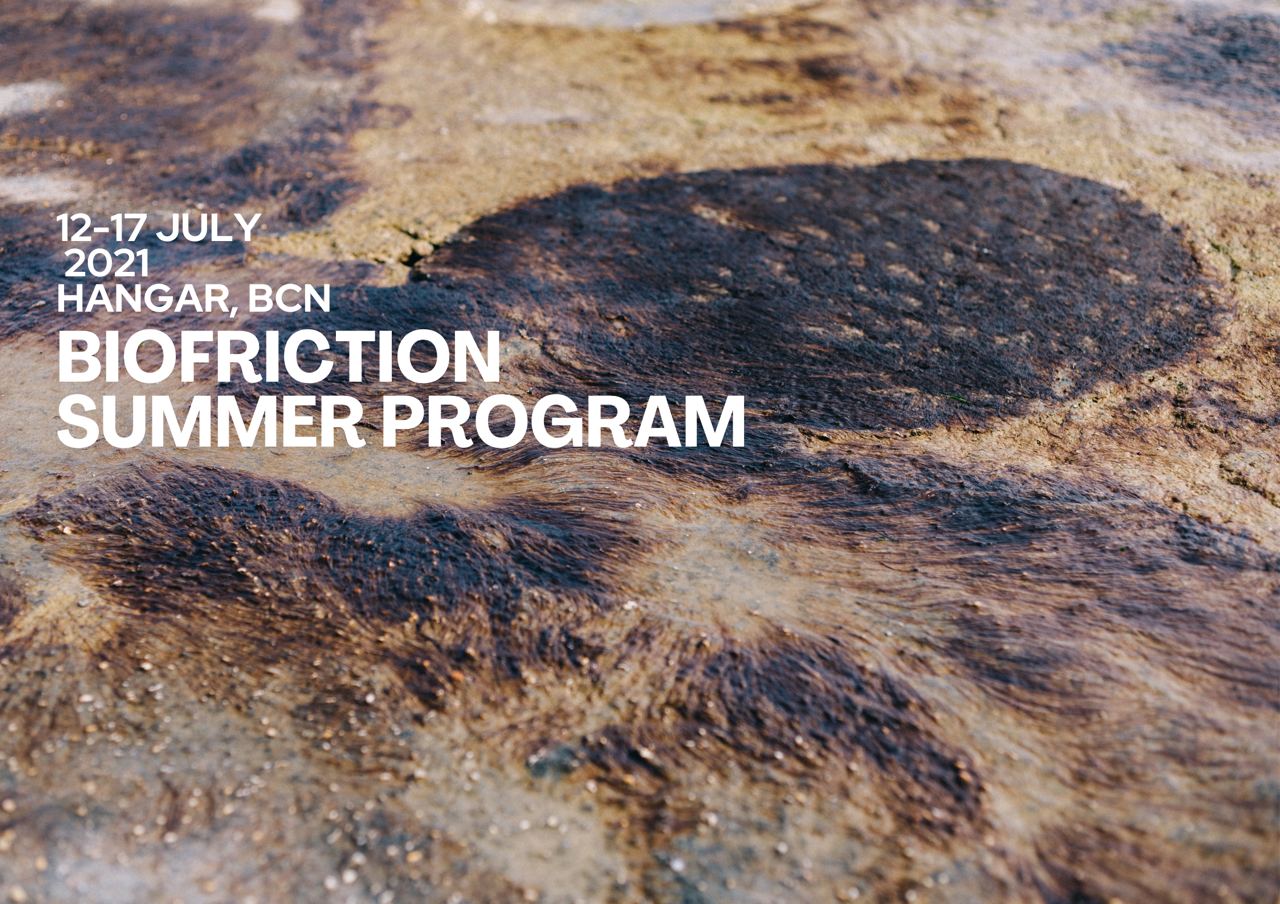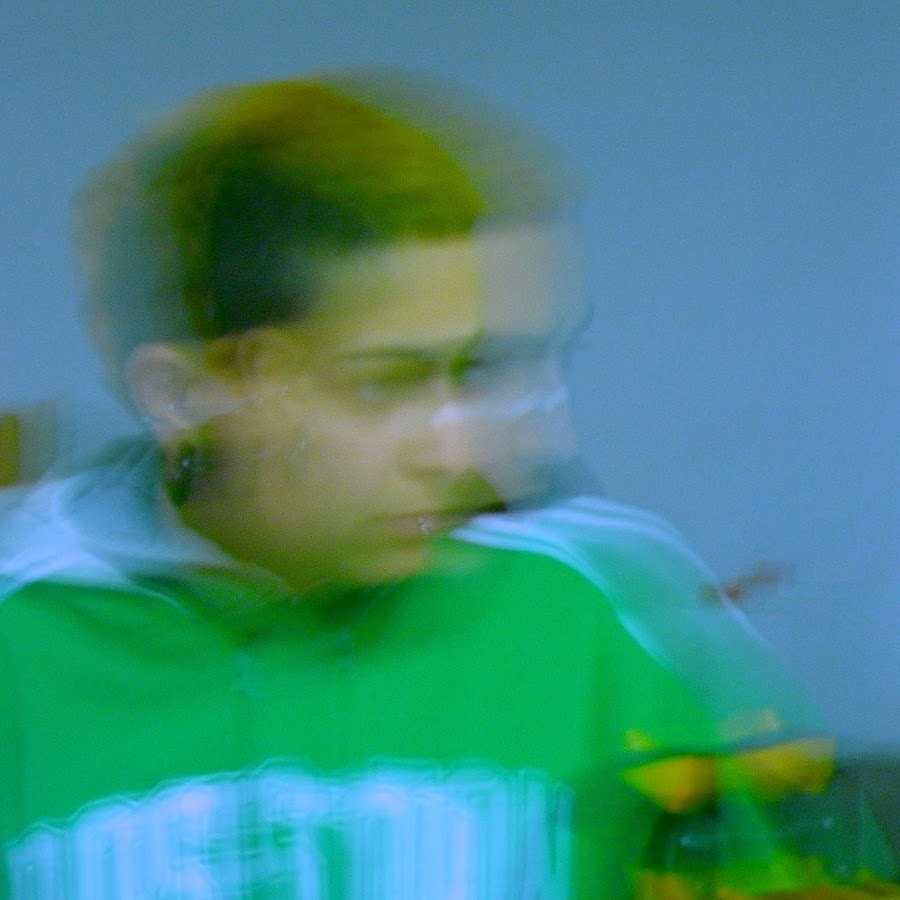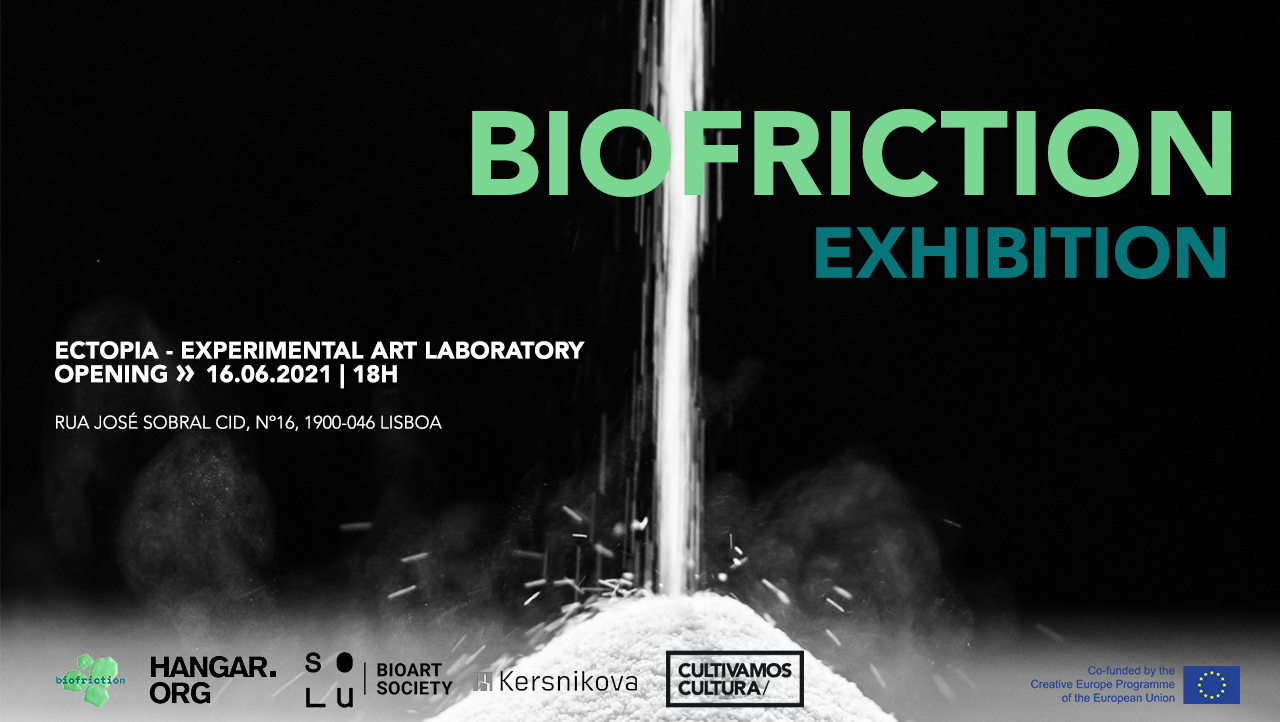
From the 12th to the 17th of July of 2021, Hangar hosts the Summer program of Biofriction.
The Summer program is a six-day intensive full-time programme on experimental practices where to share and generate situated knowledge(s). Composed of a series of workshops, seminars, and presentations on Wetlab, Radical Ecologies, Ethics, Biohacking, and F(r)ictions; bringing together artists, researchers, philosophers, and hackers (among others) from diverse (in)trans_disciplinary practices and perspectives. One week to share questions, concerns, experiments, curiosities, and critical tools. The proposal is conceived as an entangled structure in which all the thematic nodes are intertwined, but with specific activities that help to cross-pollinate.
How do biotechnologies challenge us? Do we participate in their use or only in their applications? Can we articulate experimental practices with biomaterials? What are the implications of referring to other bio agents as “material”? Can we generate critical and emancipatory tools in a context of collapse? What are the ethical problems posed by experimental practices with the bio? How to articulate situated and mutable Ethics? How to cohabit in a different way with all companion agents? What are the political problems? Can we generate disruptive tactics to hack hegemonic narratives? How does fiction operate? And speculation? How does care operate? What about scale? What is the regime of volumetric representation? How does it affect us? Can we subvert surveillance? How to hack essentialism from (bio)experimental practices? We have a responsibility to decolonize technologies, but how can this be done without generating epistemic violence? Is it possible to do so within the framework of a European project? To what extent are we willing to meet and share through friction and dissent?
Day 1 – Monday, July the 12th: Wetlab: A welcome session and an introduction to the wetlab space will be done by the resident collective. What is a wetlab, and who inhabit it?
If we understand biology not only as a discipline of the natural sciences that studies life and living organisms, what is bio?
If we understand biology as life and technologies which operate at the level of life management, how would we define these technologies?
Which are the interconnection between humans and non-humans? How do contamination and the transmission of knowledge operate in this ecosystem?
Carers_Facilitators: Ce Quimera and Gaia Leandra. Wetlab resident collective
Day 2 – Tuesday, July the 13th: Radical Ecologies: This node works on questions related to the situation of ecological crisis and the potential of bio(info)technologies for the implementation of environmental research tools for the defense of territories affected by pollution processes. We will discuss the importance of the presentation and mediation of contemporary arts at the interface of arts, sciences, and technologies.
Carers_Facilitators: Xose Quiroga IMVEC and Regine Rapp & Christian de Lutz Art Laboratory Berlin
Day 3 – Wednesday, July the 14th: Ethics: What ethical issues do we face when working with biomaterials and biotechnologies? In this node will work on our human responsibility for the world, at a time when life finds itself under a unique threat. What are the ethical implications of rethinking life? Can we articulate Ethics beyond duty-based deontological models? What role can (distr)active listening and sound play in rethinking Ethics in a context dominated by the visual regime?
Carers_Facilitators: Joanna Zylisnka and Arnau Sala Saez
Day 4 – Thursday, July the 15th: (bio)hacking_with_care: This node invites the participants to experiment and to be crossed by the practical_experimental experience of biotech. DIT [Do it together] tools, fluids, non-static bodies, and anti-essentialist conceptions. To move beyond mere individuality, and perform the sciences and experimental practices through collective doing.
Carers_Facilitators: Mary Maggic and Paula Pin
Day 5 – Friday, July the 16th: F(r)ictions: This node works on questions related to biology, fiction, and arts as surfaces of friction. We will address questions of power but also the problems of fiction, speculation, and scale. What happens when fiction produces the real in terms of control? How does the cultural regime of volumetry operate? What happens to “bodies” in the context of 3D scanning, modeling and tracing technologies, infrastructures, and techniques?
Carers_Facilitators: Helen Torres and Possible Bodies
Day 6 – Saturday, July the 17th: Conclusions: Final comments and sum up of the themes and the transfer of knowledge learned during the Summer Program. Future plans and alliances?
Downloadable Program: Biofriction_Summer_Program
—
Practical information:
Date and Venue: 12th to 17th of July 2021, Hangar, Barcelona.
Participants: artists, curators, theorists, doctoral students, undergraduates, self-taught students or social curious-agents who want to expand and share knowledge(s) on bioart, biohacking, biotechnologies
Participation fee: 200€ which includes access to all activities, use of tools and materials, certificate of participation, snacks and coffee.
*Biofriction has 2 scholarships available for those who cannot afford the fee. If this is your case, please send a cover letter to laura@hangar.org
Please, we appeal to collective responsibility and solidarity! if you don’t need it, don’t ask for it
Apply here!
+ info : info@biofriction.org
application deadline: 30th of June
*Image: Maria Francesca Nitti
— Biofriction is a Creative Europe project led by Hangar in collaboration with Bioart Society, Cultivamos Cultura, and Kersnikova Institute on Bioart and Biohacking practices.



